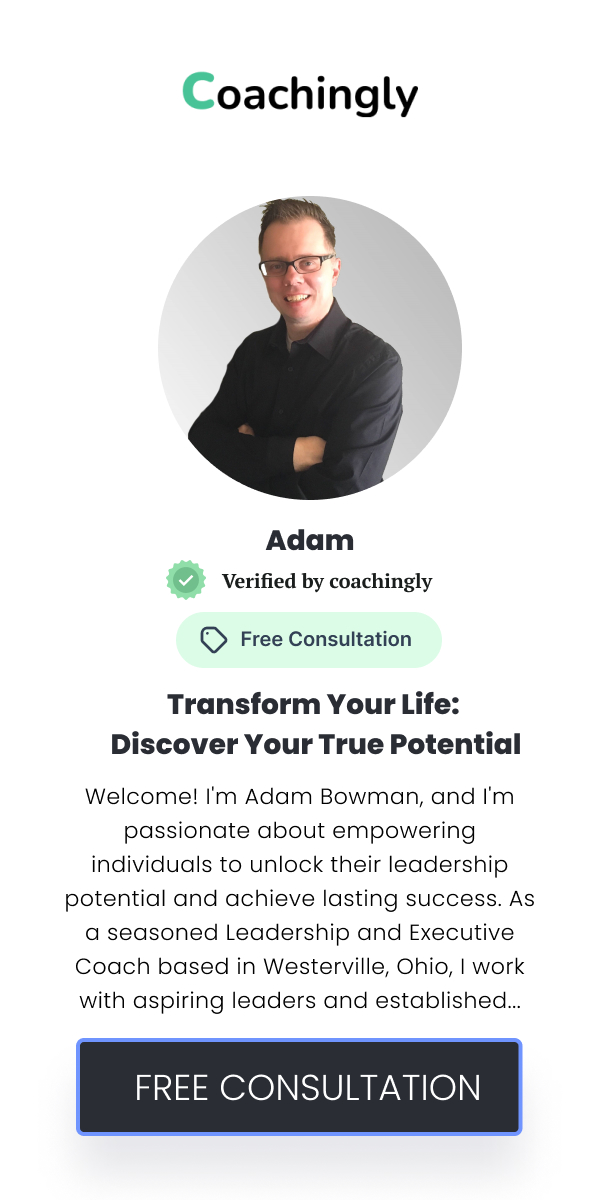
Personal Development for Leaders: Balancing Professional and Personal Growth
![]() Dr. Adam Bowman
Dr. Adam Bowman
![]() July 29, 2024
July 29, 2024
Personal development is a cornerstone of effective leadership, playing a critical role in shaping how leaders navigate their roles and responsibilities. At its core, personal growth involves a commitment to self-awareness, emotional intelligence, and continuous learning. For leaders, this means not only refining their professional skills but also investing in their personal well-being and growth. Developing a deep understanding of oneself enables leaders to make informed decisions, lead with authenticity, and foster stronger connections with their teams. The essence of personal development lies in recognising and nurturing one's strengths while addressing areas for improvement. Leaders who embrace this journey are better equipped to handle the challenges of their roles and to inspire those around them. By focusing on personal development, leaders can enhance their ability to lead effectively and to achieve both their professional and personal aspirations. Personal growth significantly influences professional success, creating a synergy that enhances leadership capabilities. Leaders who prioritise personal development often find that their improved self-awareness and emotional intelligence translate into more effective decision-making and stronger team dynamics. Balancing personal and professional life is crucial for maintaining this equilibrium; it involves setting clear boundaries and ensuring that personal well-being is not overshadowed by professional demands. A leader who achieves this balance is not only more productive but also more resilient and adaptable. Integrating personal growth with professional responsibilities requires intentional effort and thoughtful planning. Effective leaders recognise that personal development is not a separate endeavour but an integral part of their overall success. By harmonising these aspects of life, leaders can achieve a more fulfilling and balanced approach to their roles. Setting clear, actionable goals is essential for effective personal development. Leaders should establish specific, measurable objectives that align with their professional aspirations and personal values. Embracing lifelong learning is another key strategy; this involves seeking out new knowledge, skills, and experiences that contribute to personal and professional growth. Engaging with mentors and coaches can provide valuable insights and guidance throughout this journey. Developing emotional intelligence is crucial for leaders, as it enhances self-regulation, empathy, and interpersonal skills. Leaders should actively work on understanding and managing their emotions while fostering meaningful connections with others. These strategies collectively contribute to a well-rounded approach to personal development, equipping leaders with the tools they need to excel in their roles. Effective time management is a vital skill for balancing personal development with professional responsibilities. Leaders should employ strategies such as prioritising tasks, setting clear deadlines, and delegating when appropriate. Creating a balanced routine that incorporates time for personal growth, professional duties, and self-care is essential. Leaders can design daily schedules that allow for dedicated time to pursue personal development activities while managing their work commitments. Utilising coaching and mentoring can provide ongoing support and accountability, helping leaders stay on track with their development goals. Engaging in regular reflection and adjustment of one's routine can ensure that both personal and professional objectives are being met. By integrating these practical tips, leaders can maintain a harmonious balance that supports their overall growth and effectiveness. Leaders often face challenges in personal development, including time constraints, conflicting priorities, and resistance to change. Identifying these obstacles is the first step towards overcoming them. Strategies such as setting realistic goals, breaking tasks into manageable steps, and seeking support from mentors or peers can help address these issues. Developing a flexible mindset and embracing change as an opportunity for growth can also be beneficial. Leaders should recognise that overcoming challenges is an ongoing process that requires persistence and adaptability. Addressing obstacles head-on and maintaining a focus on long-term goals can lead to significant improvements in personal and professional development. By tackling these challenges proactively, leaders can continue to grow and thrive in their roles. Assessing personal growth is crucial for understanding how effectively one's development efforts are translating into real-world results. Leaders should regularly evaluate their progress against the goals they have set, reflecting on both achievements and areas for improvement. Adjusting goals as needed based on this assessment allows for a dynamic approach to personal development. This process involves revisiting and refining goals to ensure they remain relevant and achievable. Leaders should be prepared to adapt their strategies and approaches as their circumstances and objectives evolve. Continuous evaluation and adjustment help maintain momentum and ensure that personal development efforts are aligned with professional aspirations. By focusing on measurable progress and flexibility, leaders can sustain their growth and drive ongoing success.Understanding Personal Development for Leaders
The Interplay Between Professional and Personal Growth
Strategies for Effective Personal Development
Practical Tips for Integrating Personal Development into Daily Life
Overcoming Challenges in Personal Development
Measuring Progress and Adjusting Goals

Recent Articles
Maximising Your Leadership Effectiveness Through Personalised Coaching
The Power of Personalised Coac...
![]() Aug 20, 2024
Aug 20, 2024
Navigating Career Transitions: A Guide for New Leaders
Transitioning into a leadershi...
![]() Aug 19, 2024
Aug 19, 2024
Overcoming Common Leadership Challenges: Insights from Executive Coaching
Navigating the complexities of...
![]() Aug 18, 2024
Aug 18, 2024
How to Transition from Technical Expert to Influential Leader
Understanding the Shift from T...
![]() Aug 17, 2024
Aug 17, 2024
How to Develop Effective Decision-Making Skills in Leadership
In the realm of leadership, th...
![]() Aug 16, 2024
Aug 16, 2024
Creating a Balanced Leadership Approach: Integrating Work and Life
Understanding the Importance o...
![]() Aug 15, 2024
Aug 15, 2024
Personal Growth for Leaders: Finding Fulfillment Beyond the Boardroom
The Importance of Personal Gro...
![]() Aug 14, 2024
Aug 14, 2024
Strengths-Based Leadership: Leveraging Your Unique Talents for Success
Understanding Strengths-Based ...
![]() Aug 13, 2024
Aug 13, 2024
The Benefits of Tailored Coaching: Personalising Your Leadership Journey
Understanding Tailored Coachin...
![]() Aug 12, 2024
Aug 12, 2024
Unlocking Leadership Potential: Strategies for Aspiring Executives
The Essence of Effective Leade...
![]() Aug 11, 2024
Aug 11, 2024
Developing Resilience: How Leaders Can Navigate Change Successfully
Understanding Resilience in Le...
![]() Aug 10, 2024
Aug 10, 2024
Leadership and Organisational Psychology: What You Need to Know
Understanding Leadership Throu...
![]() Aug 09, 2024
Aug 09, 2024
How to Build Confidence and Authenticity as a New Leader
Understanding the Role of Conf...
![]() Aug 08, 2024
Aug 08, 2024
The Importance of Emotional Regulation in Leadership
The Role of Emotional Regulati...
![]() Aug 07, 2024
Aug 07, 2024
The Impact of Leadership Coaching on Career Advancement
In today's competitive profess...
![]() Aug 06, 2024
Aug 06, 2024
The Power of Authentic Leadership: Leading with Purpose and Resilience
Understanding Authentic Leader...
![]() Aug 05, 2024
Aug 05, 2024
Long-Term Leadership Success: Building Sustainable Practices for Growth
Achieving long-term leadership...
![]() Aug 04, 2024
Aug 04, 2024
Developing a Leadership Presence: Tips for Making a Lasting Impact
Understanding Leadership Prese...
![]() Aug 03, 2024
Aug 03, 2024
Building a Strong Leadership Pipeline: Benefits of Team and Group Coaching
Understanding the Need for a L...
![]() Aug 02, 2024
Aug 02, 2024
Team Dynamics and Leadership: Fostering Collaboration and Communication
Understanding Team DynamicsTea...
![]() Aug 01, 2024
Aug 01, 2024
The Role of Emotional Intelligence in Effective Leadership
Understanding Emotional Intell...
![]() Jul 31, 2024
Jul 31, 2024
Enhancing Communication Skills for Effective Leadership
Understanding the Role of Comm...
![]() Jul 30, 2024
Jul 30, 2024
The Impact of an Executive Coach on Leadership Success
Defining the Role of an Execut...
![]() Jul 28, 2024
Jul 28, 2024
The Role of an Executive Coach in Achieving Leadership Excellence
Understanding the Role of an E...
![]() Jul 27, 2024
Jul 27, 2024
